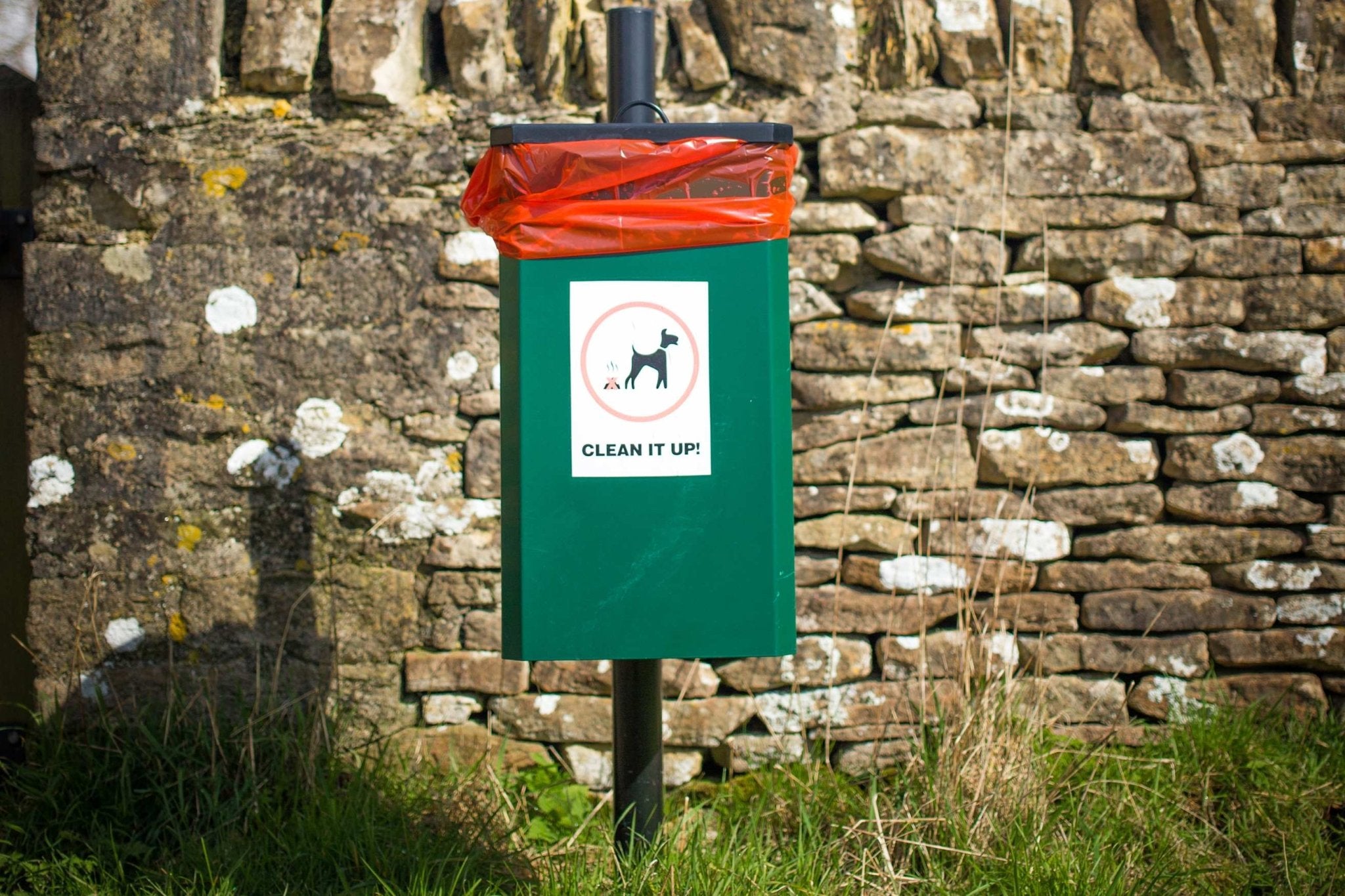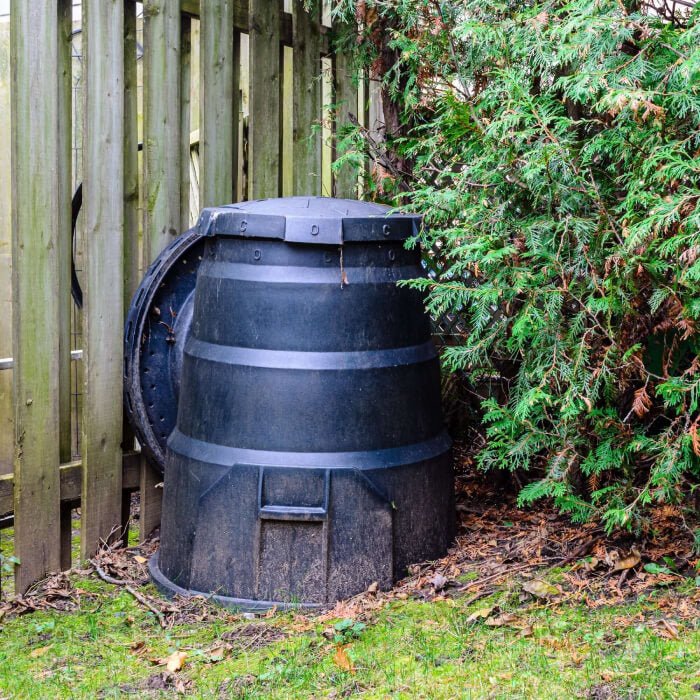Christmas is one of the busiest and most celebrated times of the year. It's a time when we eat the most, spend the most money and enjoy time with friends and family!
However, from an environmental standpoint - it is a disaster! Pollution, greenhouse gas emissions and household waste increase significantly. Compared to other times of the year, we throw away an additional 230,000 tonnes of food, 1 billion Christmas cards, 80,000 tonnes of clothes, 227,000 miles of wrapping paper, 125,000 tonnes of plastic packaging, the list goes on...
To give you an idea of what this waste actually looks like, if we placed all our Christmas cards alongside one another, they would stretch around the world 500 times! Our combined Christmas dinners alone produce the same carbon footprint as a single car travelling 6,000 times around the world.
With the impacts of climate change and pollution becoming impossible to ignore, it's more important than ever that we make Christmas more sustainable. While the planet might not be top of your Christmas list, it desperately needs your help.
Fortunately, Pet Impact is here to help you! Having a sustainable Christmas doesn’t have to be any less festive and can even save you time, money and stress!
Below you will find 17 tips, big and small, to help make it a Christmas that you can be proud of.
So let’s dive in.
1. Ditch the xmas cards!

Ok, maybe you don’t have to completely ditch them! But rethink and upcycle them.
We all love the feeling of receiving a Christmas card, however research suggests an unbelievable 1.5 billion Christmas cards are thrown away by UK households every year and that the paper waste generated over this period is equivalent to 5-12 million litres of biofuel – that’s enough to power a bus to go to the moon 20 times!
Alternatives:
· Send e-cards!
· Choose FSC Xmas cards made from recycled paper
· Go for something a novel alternative (for green fingered friends and family) - use xmas cards made from seed paper.
· Upcycle old Christmas cards as gift tags for presents. Simply cut old cards in half as use the front as a gift tag for your presents! If you haven’t got any old cards from last year, make sure you save any physical xmas cards you receive from this year so you can use them for next.
2. Need vs want
Did you know, 1 in 10 christmas gifts end up in the bin?
It can be really difficult thinking of gifts for family and businesses are hell bent on selling you as many products as possible. But try to ask yourself whether the gift will actually be useful or needed or will be needed in the near future. It can be helpful to ask loved ones to write lists of things they need for inspiration and to avoid buying gifts that end up in the bin. Or even have a chat with your family prior to xmas about how many gifts you are going to be giving each other and agree on a smaller number.

3. non-physical gifts
It’s tempting to feel the need to buy lots of physical presents for xmas but there are many non-physical, low carbon and plastic-free gifts out there. These also happen to make excellent last minute gifts for the less organised of us.. 😉
Gift Ideas:
Experiences - these tend to stay in the memory much longer! Such as theatre, comedy night, afternoon tea, dinner out, weekend away, spa day, tickets to see a band
Memberships - Audible, National trust, Mossy Earth membership (like Pet Impact!), Museum or Netflix and there’s any number of Apps!
Charitable donation or adopt an animal
5. Rethink your xmas tree

The best option – rent a tree! More gardening centres and plant nurseries are offering this service and they will often deliver and collect the tree after its used and replant it!
Reusing the same fake tree year after year may be the best choice for you, but take time to choose the right one as, according to The Soil Association, you need to re-use an artificial tree 10 times to negate its carbon footprint. Try gumtree, ebay or freecycle to find your xmas tree. If you miss the scent of a real tree, why not try pine scented candles and xmas tree sprays to get that festive fragrance.
If choosing a real tree – choose a UK-grown tree from a local retailer to reduce its carbon footprint and ensure it is organic and FSC certified so that its grown sustainably. Instead of chucking your tree, try to replant it!
6. CHOOSE SLOW DELIVERY OPTIONS WHEN BUYING ONLINE AND CHOOSE CLICK&COLLECT
If you give online retailers enough time to fully load, or consolidate, their trucks before they go on their delivery runs, the result is a significant overall drop in greenhouse-gas emissions compared with in-store shopping: One van delivering 50 packages is much more efficient than 50 people driving to the store. But when next day delivery options are chosen, multiple trucks may need to be sent on multiple days, meaning trucks can go from 80% full to just 10-20% - the whole efficiency of the process breaks down.
Choose the slowest delivery option
Choose a click&collect instead of delivery to your door - eliminates the risk and cost of missed deliveries, don't have to wait at home for a delivery, pick up your order at your convenience, but also reduces the carbon emissions of delivery trucks and traffic congestion.
.

7. Eco-friendly decorations
Pledge to buy no new christmas decorations! Many of us have a box of decorations in the loft that comes out once a year. So this may be easy. But if you’re wanting some more decorations, why not bring the outside indoors? Instead of tinsel and glitter, choose foliage from outside. This can also be a great festive family activity. Try to compost your foliage instead of throwing it into the general waste.
8. Swap christmas jumpers
A popular tradition during the festive period is that of novelty Christmas jumpers.
Around one third of young adults buy new festive sweater every year, despite 65 million already languishing in UK wardrobes. A perfect example of fast fashion, up to 95% of these jumpers contain plastic or plastic based materials, contributing to plastic pollution and waste.
This year pledge not to buy a new one, instead:
Swap Christmas jumpers with friends
Buy a jumper second hand!
Or, slightly controversially, don't join the Christmas jumper trend
9. make your pet a gift or Visit Pet Impact’s second chance store
Our pets are members of the family, so it is only natural to want to also buy them gifts, as we would for other members of the family. However, your pet doesn't know or understand that it is Christmas and so buying them gifts to celebrate the festive period could potentially be wasteful.
Think hard about whether there's anything your pet truly needs (or will need in the near future) and avoid buying useless gifts.
Why not consider making your pet a gift instead of buying one? Check out these recipes for treats below! Here are some recipes you could try: https://southerneatsandgoodies.com/homemade-dog-food.../
Alternatively, visit Pet Impact's second chance store - where slightly imperfect (but purely functional!) products get a second chance: https://www.petimpact.co.uk/second-chance
10. Ditch the wrapping paper and cello tape
In the UK we use 108 million rolls of wrapping paper at Christmas - enough to wrap around the equator 9 times!

Some wrapping paper isn’t even recyclable so save yourself some money and get creative!
Here’s some alternatives to wrapping paper:
Upcycled cardboard box (leftover from online shops)
Flower pot (which you could decorate/paint yourself)
Pillowcase
Suitcase
Basket
Tote bag
Jar or tin
Spare bits of fabric - tie using the Furoshiki method of tying (see below)!
Double up presents, such as a handkerchiefs, tea towels, t-shirts or scarfs to wrap gifts
Crisp packets - a unique idea for small gifts is turning crisp packets inside out to show their silvery inside (cleaning off the salty residue of course!)
Upcycle old magazines, maps or newspapers
Don’t wrap presents at all and do a scavenger hunt instead! Hide your unwrapped presents around the house with clues to find them to prolong the Christmas excitement and perhaps start a new Christmas tradition!
Ditch the sellotape!
Use recyclable gummed paper tape or bits of string or shoelaces
Gummed paper tape is an adhesive tape made from natural resources such as paper or potato starch. It has a natural glue adhesive which becomes sticky when moistened upon application, meaning it’s fully recyclable. This is the tape that Pet Impact uses for their Impact boxes!
Most Sellotape is made from plastic and cant be recycled. If buying so called ‘biodegradable or compostable’ tapes. remember to check whether they are properly certified home compostable (with seedling logo or TUV) and ask yourself if you genuinely compost it… if not, opting for recyclable tape is probably better!
11. Reduce food waste through planning

During the Christmas season alone, almost 270,000 tons of food is wasted and a lot of it is still edible, that’s the equivalent of 74 million mince pies in food waste!
The UN estimates that 1.3 billion tonnes of food is wasted globally each year, which would feed all of the hungry people in the world, four times over.
There are many ways to reduce food waste, they are as follow:
Shopping lists and meal plans - plan ahead to avoid overbuying, write a shopping list and don’t go shopping hungry! Not sure how much to buy? Visit BBC’s good food portion planner.
Buy organic local meat
Try out a veggie or vegan recipe!
Use the freezer - the weeks leading up to Christmas is a great time to try clearing out your freezer, eating that bulky shoulder joint or bag of broccoli you forgot you had. This will make room for prompt freezing of any leftovers you have.
Shopping seasonal fruit and veg - this can dramatically reduce your carbon footprint by reducing the air miles your food has travelled. Thankfully the European Food Information Council (EUFIC) have done an handy interactive map that makes shopping seasonally dead easy – check it out here: https://www.eufic.org/en/explore-seasonal-fruit-and-vegetables-in-europe.
Share excess food or leftovers - If you realise you’ve bought too much food, your local food bank might be grateful for the donation or you can even gift food to your neighbours or use Olio - an app that allows you to share leftovers with local people!
Visit https://www.lovefoodhatewaste.com/good-food-habits/how-do-I to learn more on how to reduce food waste.
12. secret santa
Ultimately, the biggest impact that you can make is by buying less and reject our culture of consumerism.
How can you achieve that this Christmas?
Instead of buying multiple gifts why not opt for a secret Santa for the adults in the family instead? You could go a step further and buy your secret Santa a non-physical gift, such as an experience or day out! Not only does this relieve the stress of buying multiple gifts but saves you money, time and reduces your impact on the planet. It also sets a positive example to the children in the family, encouraging them to value other aspects of Christmas.
It's important to get everyone on board, so try to chat to your family sooner rather than later and explain why doing a secret Santa is important to you.
13. regift
Have you heard of re-gifting? It means exactly how it sounds, to give someone a gift you previously received from someone else! While some people may frown upon this, if all parties have agreed prior to the regifting it can provide a fun way of reducing waste (and costs!). There’s different ways that you can do this. But one way would be ask everyone bring 1 or 2 gifts to Christmas. Put all the gifts on the table (or around the Christmas tree to keep it festive!). Then one person at a time to select the gift they want, going in alphabetical order When it’s your turn to select your gift, you have the option of either choosing a ‘new’ gift or stealing one from someone else who has already chosen. The person who is stolen from then has the option of a ‘new’ regift or taking someone else’s (except for the one that was just taken from them). Keep going until everyone is happy with their gifts!

14. Reusable or D.I.Y. crackers
Did you know you can buy reusable crackers? While they may be a slightly bigger upfront cost they will save you money in the long run. If you’re feeling crafty you could try making your own. Alternatively you can buy ‘fill your own’ crackers where you can fill them with useful gifts, instead of the useless sort that immediately end up in the bin!

15. Repair or cycle your fairy lights
Did you know, 500 TONNES OF FAIRY LIGHTS ARE THROWN AWAY EACH YEAR?
Often it’s a simple case of replacing one bulb or fixing the fuse in the plug - try to repair before throwing away!
If you’re not much of D.I.Y. expert, there may be repair shops near you or try asking a member of the family, friend or neighbor. If they still can’t be fixed then ensure to recycle them vs throwing them into general waste (and landfill!).
16. Turn off your Christmas lights
With the cost of living hitting many homes I’m sure we’ll all be quick to turn them off when they’re not needed but it’s worth mentioning again, make sure they’re off at night or when you’re not in the room to save money, electricity and also prevent interference with wildlife at night.
17. Buy less, buy better
The biggest impact you can make is to simply buy less. Christmas doesn’t have to be an expensive and wasteful affair.
If you have the time and are feeling crafty, then try making gifts. If you don’t have time to do this then consider buying second hand before buying new, either in your local charity shops, on ebay, freecycle, gumtree, facebook market place. If you are buying new, then try to buy (fewer) quality presents that are built to last, like reusable razors. If you can buy from local independent shops - even better! Lastly, if you are buying online, try to buy from eco-friendly and ethical businesses.






Leave a comment